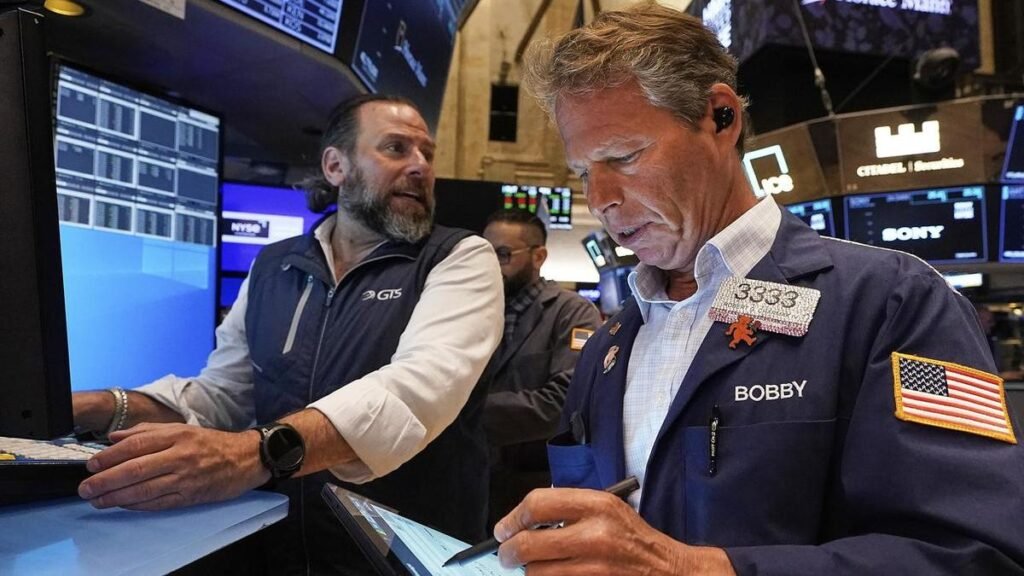Wall Street’s main indexes have fallen after US President Donald Trump recommended 50 per cent tariffs on the European Union while Apple slid after he warned the company would have to pay tariffs if iPhones were not made in the United States.
“The European Union, which was formed for the primary purpose of taking advantage of the United States on TRADE, has been very difficult to deal with,” Trump said in a post on Truth Social.
Apple touched a two-week low and was down 2.7 per cent after Trump said in a separate post before this that the iPhone-maker would be subject to 25 per cent tariffs if its phones sold in the US were not made within the country’s borders.
“Opening more fronts on the trade war was exactly what traders, hoping for a quiet end to a pre-holiday weekend, did not need and it clearly caught most off guard,” said Steve Sosnick, chief market analyst at Interactive Brokers.
“It’s not clear what prompted these statements but they are emblematic of the type of volatility that we should always be prepared for.”
In early trading on Friday, the Dow Jones Industrial Average fell 394.94 points, or 0.94 per cent, to 41,464.15, the S&P 500 lost 68.92 points, or 1.18 per cent, to 5,773.09, and the Nasdaq Composite lost 288.78 points, or 1.53 per cent, to 18,636.96.
Wall Street’s “fear gauge,” the CBOE Volatility Index, spiked to a more than two-week high and was last at 24 points.
All 11 major S&P sub-sectors fell, with consumer discretionary and information technology being the worst hit.
Most megacap and growth stocks dropped, with Amazon and Nvidia sliding about 2.0 per cent each.
A gauge for semiconductor stocks fell nearly 2.0 per cent, while carriers including American Airlines lost more than 1.0 per cent.
Sportswear giant Nike dropped 2.5 per cent and electronics retailer Best Buy dipped 1.7 per cent.
Deckers Outdoor slumped more than 21 per cent after the maker of UGG boots forecast first-quarter net sales below estimates and said that due to tariff-led macroeconomic uncertainty, it would not be providing annual targets.
All three main stock indexes were set for sharp weekly losses as worries about mounting debt pushed Treasury yields higher earlier in the week.
Moody’s downgrade of the US credit rating late last week had initially sparked the concerns.
The Republican-controlled US House of Representatives passed the sweeping tax and spending bill that would enact much of Trump’s policy agenda by a narrow margin on Thursday.
The bill now heads to the Senate, which the Republicans control by 53-47, for approval.
Long-dated government bond yields eased further as investors moved to safer assets, with those on the 10-year note off 4.8 basis points to 4.505 per cent.
On the flip side, Intuit advanced 8.7 per cent to an all-time high after the tax-preparation software provider forecast fourth-quarter revenue and profit above estimates.
Trading activity is expected to thin out heading into a long weekend as markets will be shut on Monday for Memorial Day.


